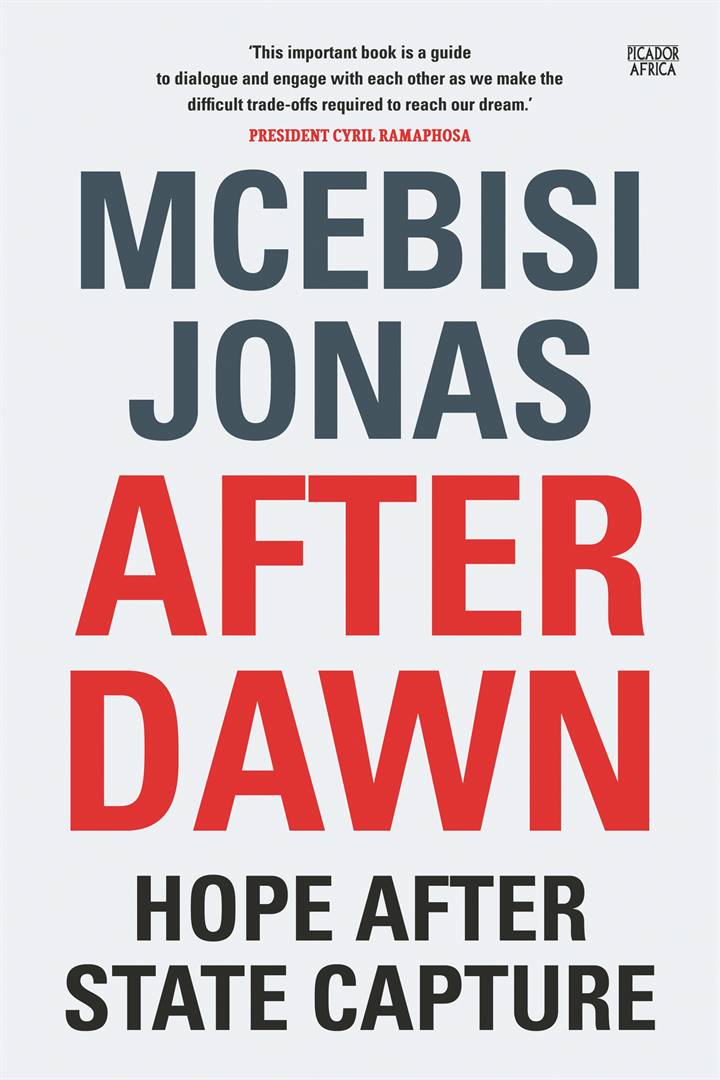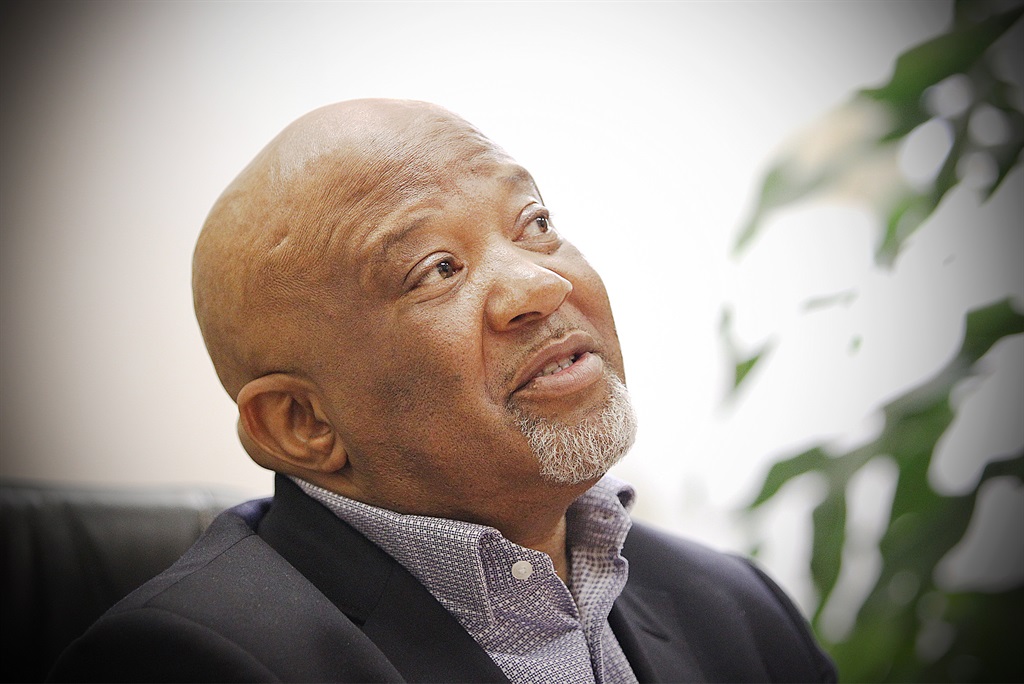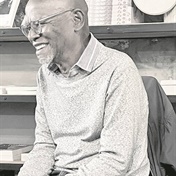
Known as a politician who resisted state capture as a deputy minister of finance, Mcebisi Jonas has written a highly anticipated book.
In this extract, which serves as the preface to After Dawn, Jonas outlines why we find ourselves in this economic crisis and, more importantly, how we may turn it around.
In October 2015, the Gupta brothers offered me the position of minister of finance in exchange for R600 million.
I had already become aware of a festering nexus between certain businesspeople and politicians.
I knew that the ruling ANC, like most transitional political parties, was facing internal challenges and
I knew patronage and access to state resources were used by political brokers to rally support behind leaders and factions.
I had put these issues down to the cut and thrust of an emerging democracy. I have been active in the struggle for democracy since I was 14 and I did not question the resilience of the ruling party to shepherd the country through these challenges.
But the afternoon I was offered the bribe crushed this belief.
I felt a deep sense of loss and disorientation as it dawned on me that the rumours of a parallel state were not only true, but had assumed a scale so audacious that South Africa’s state-building project had fallen headlong into the hands of business interests whose value system seemed directly opposed to that of the ANC that I knew.
I thought of the years we had spent fighting for democracy; we lost our youth and we suffered at the hands of the apartheid state.
Now we were faced with this – a mafia state that threatened to usurp everything we had fought for. In many ways, unlike apartheid, this felt like an invisible coup.
I felt deeply disempowered. I felt like a puppet in a much bigger game that I could not comprehend.
I turned down the bribe and navigated the months that followed in a state of incomprehension about the future of our country.
My sense of mission did not wane during this time. But it was an intensely lonely period.
I could trust only a handful of people. Everything that I had held as sacrosanct for 45 years was suddenly disintegrating.
I began to examine my basic assumptions about what democracy meant in South Africa. Who were we as a nation? How did we reach this point?
I read widely, I studied other countries that had faced similar crises and I sought the international experience of the likes of Dr Daniel Kaufmann and Dr Joel Hellman, experts on state capture.
Conceptually, this helped, but it also confirmed to me that there was no clear precedent to help us chart the way.
The election of President Cyril Ramaphosa in December 2017 was a victory, and progressive South Africans breathed a well-deserved collective sigh of relief.
But Ramaphosa was almost immediately burdened with the insurmountable expectations attached to “Ramaphoria”.
When, after 100 days in office, he had not delivered the impossible, newspaper headlines screamed “From Dawn to Dust – The Implosion of Ramaphoria” and “Ramaphoria to Ramaphobia”, and so on.
This was a far-reaching mistake we made as a nation.
Such was our enthusiasm for everything to be all right, and such was our relief that state capture had not pushed us over the precipice, that we failed to acknowledge the complexities that had driven us to the point of near collapse.
This was not something that one man, however well-positioned, could fix.
Indeed, the current propensity to over-personalise our politics – whether it is a focus on Jacob Zuma who “created the problems”, or Ramaphosa who “can fix the problems” – means that we risk overlooking the much more dangerous structural and systemic nature of our crisis.
This crisis sits at the heart of our current system, which places politicians at the centre of our economy and in so doing also puts politics in the middle of economic policy-making and implementation.
As a result, the short-term management of constituencies and the retention of political power and control – determined by our electoral cycles – have come to define our political and economic trajectory.
A long-term inclusive growth agenda has become incidental. We have failed to maintain the independence of key institutions, in part because meritocracy has not prevailed, and in part because political deployment has trounced administrative independence in state institutions and the public service.
During the first 15 years of our democracy, our economy was large enough to support excessive politics and interference.
Up until the 2008 global financial crash, our economic surplus, driven mainly by the commodities super-cycle and policy stability, kept the imbalances in our society in an uneasy equilibrium.
From about 2009, this began to unravel because the surplus required to balance the interests of the various competing constituencies that make South Africa was no longer present. This system now threatens implosion.
This is a book about the political economy. It is a book that determines how politics has shaped our economic choices and our fortunes, which now lie at the heart of our growth challenge.
There have been many studies of our economy in isolation from our politics; this book acknowledges that the two cannot be delinked.
But, in acknowledging this, I would argue that we need to create a system that is able to move the country from dependence on a political elite to one that promotes innovation and administrative independence.
We must move from a system where we once celebrated old monopolies to a system driven by technology, competition and global links.
The essence of my argument in this book is that the 1994 consensus – the social contract that enabled us to peacefully transition to democracy and which bound us together in the first two decades of freedom – is unravelling.
1. The historic elite or what we could call established wealth. This group was accommodated through macro-policy stabilisation and the political management of expropriation risk through, among other mechanisms, specific constitutional provisions.
2. The aspirant black elite. This group was accommodated through a thin albeit powerful layer of boardroom BEE through public sector jobs and access to state-business patronage networks.
3. Organised labour. This group was accommodated through supportive labour legislation, collective bargaining and public sector unions, which have become increasingly larger and more powerful within the labour federations. They were incorporated through above-inflation wage increases with little emphasis on productivity.
4. The poor and unemployed. This group was accommodated through fiscal redistribution as a result of a rapidly expanded welfare net. This ensured that the poor and unemployed remained more or less supportive of the transition, accommodative of the market-led policy choices and less susceptible to national or ethnic populism.
This system is now unravelling (or rather has unravelled) and we could be on a path towards major disruption.
The historic elite have grown frustrated with mixed policy signalling, corruption and the rising costs of business.
They are withholding investment and investing elsewhere, or investing in liquid rather than fixed capital markets where jobs can be created.
The new black elite have grown increasingly frustrated at the limited opportunities for inclusion in the concentrated and stagnant real economy, and more recently at the closing spaces in the patronage economy resulting from reduced fiscal resources, improved governance in state-owned enterprises and growing anticorruption sentiments in society.
Lack of growth and consequent fiscal constraints have limited the available resources for buying acquiescence from public sector unions.
Continued above-inflation increases for public servants seem highly unlikely in the short to medium term.
And the lack of jobs, coupled with the fact that levels of fiscal redistribution cannot keep pace with cost of living increases, has created heightened levels of grassroots discontent, which is illustrated in growing service delivery protests and populism.
In simple terms, this unravelling is being driven by three things.
Firstly, the model itself has been anchored on growth, which we have failed to achieve since 2008/09.
Secondly, it was based on assumptions about the effectiveness and efficiency of the state, which have proven misplaced as we have slipped backwards in this respect.
Thirdly, the constituent elements of the 1994 agreement – business, labour, government, society and political parties – have become increasingly self-serving and concurrently dislocated from their base.
In essence, we have a leadership crisis combined with an existential crisis as a nation. We have no clear identity and no clear vision for where we are going.
This means that the scene is set for disruption. But what remains unclear is the form that this will take, what the likely outcomes are and the strategies we need to adopt to ensure a path to a constructive future.
This book makes a modest contribution to better understanding the nature of the systemic challenges we face and what we need to do to transition to a new kind of politics and economy.
Firstly, constraints to competitiveness and investment must be quickly removed so that the economy can grow and our fiscal crisis can be resolved. Here, we need bold measures and new institutions to enhance productivity and the competitiveness of firms. We must also strengthen our historical competitive advantages – manufacturing, agriculture, mining and tourism. This will quickly result in heightened confidence in the economy, especially among those with established wealth.
Secondly, we need to put jobs at the centre of economic policy while we restructure towards higher productivity competitiveness. This will require new policy measures and transitional packages, including subsidies and incentives to encourage labour-intensive production. A number of suggestions on how this can be done have been made in the book.
Thirdly, we must rapidly expand new technological capacities and knowledge to quickly transition to a 21st-century economy. Key to this will be to develop instruments that incentivise investment in research and development and innovation, as well as initiatives with the banking sector to expand access to financial instruments. This is vital to create a black innovative and productive class.
Fourthly, and linked to our transition towards a higher productivity economy, we need to expand human capabilities at scale, both through addressing our skills and education failures, as well as importing critical skills to provide us with the necessary technical and entrepreneurial capabilities in the immediate term.
Fifthly, we need new sets of trade-offs and measures to accelerate economic inclusion. This must be done with the established private and banking sectors. As I argue, this must be done in a manner that does not compromise investment, output and employment growth.
Sixthly, we must develop a corruption-free, high-performance state built on meritocracy and innovation. This will require a new compact with public sector unions. In the short term, we need to strengthen the independence of existing institutions and, where needed, create new institutions as centres of excellence – possibly semi-autonomous and cushioned from political interference – to drive economic restructuring.
Seventhly, the nature of politics must change. This includes ANC reform, as well as a realisation across political structures of the existential crisis we are facing as a country and as constituent parts. Dynamics within the governing party will be a major dealbreaker. The ANC remains highly fractured around competing interests and ideological persuasions. But, as a country, we cannot be held hostage to the possibility that the ANC may reform and modernise itself.
The agenda suggested in this book must be embedded across various social formations such that the governing party becomes led by society as much as it leads society.
Come with me as I take you on two journeys.
The first will take you through the badlands of political and economic failure as I attempt to diagnose the problems besetting the country.
The second will take you through a series of solutions – some complex, some easier to achieve – that I believe are necessary if we are to power South Africa up so that it becomes a vibrant, dynamic and job-creating country from which all citizens benefit.




 Publications
Publications
 Partners
Partners









